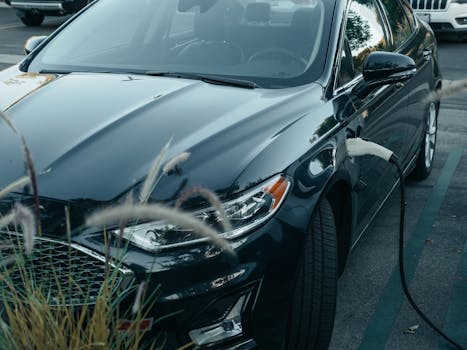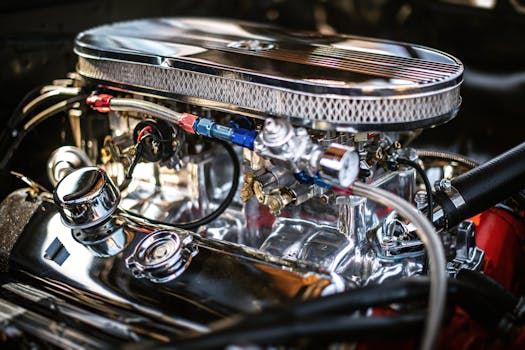The Future of Automotive Innovation: What to Expect from the New Cars Coming in 2025
Takeaways: The automotive landscape is set to transform in 2025 with advancements in electric vehicles, autonomous driving technology, and sustainability efforts. Consumers can expect a wider range of eco-friendly options and cutting-edge tech in their next vehicles.
Introduction to the 2025 Automotive Landscape

Emergence of Electric Vehicles
As climate change concerns continue to rise, the automotive industry is witnessing a massive shift towards electric vehicles (EVs). By 2025, it is predicted that a significant percentage of new car sales will be electric, driven by advancements in battery technology and government incentives.
Battery Technology Advancements
One of the most significant barriers to EV adoption has been battery technology. However, ongoing research is unlocking new possibilities. Solid-state batteries, for example, are poised to revolutionize the market by offering greater energy density and faster charging times.
Government Incentives and Regulations
Governments worldwide are implementing stricter emissions regulations and providing financial incentives to promote the adoption of EVs. By 2025, consumers can expect to see more favorable policies that encourage the switch to electric.
Increased Availability of EV Models
Automakers are rapidly expanding their EV lineups to meet consumer demand. By 2025, we can anticipate a diverse range of electric vehicles across various segments, from compact cars to SUVs and trucks.
Autonomous Driving Technology

Levels of Autonomy
Understanding the levels of driving automation is crucial for anticipating the future of autonomous vehicles. The Society of Automotive Engineers (SAE) defines six levels of automation, from Level 0 (no automation) to Level 5 (full automation).
Level 2 and 3 Vehicles
By 2025, many new vehicles will likely feature Level 2 and Level 3 automation, allowing for hands-free driving in specific scenarios, such as highway driving. This technology is expected to enhance safety and reduce driver fatigue.
Challenges to Full Autonomy
While full autonomy (Level 5) remains the ultimate goal, there are still significant challenges to overcome, including regulatory hurdles, technology reliability, and public acceptance. Automakers are working diligently to address these issues.
Safety and Ethical Considerations
The rise of autonomous vehicles raises important safety and ethical questions. How do we ensure that these vehicles make the right decisions in complex situations? By 2025, expect ongoing discussions about the implications of autonomous driving technology.
Focus on Sustainability and Eco-Friendly Vehicles

Hybrid and Plug-In Hybrid Models
While fully electric vehicles gain popularity, hybrid and plug-in hybrid models will remain relevant. These vehicles offer a transitional option for consumers who are not yet ready to make the switch to all-electric driving.
Innovative Materials and Manufacturing Processes
Car manufacturers are increasingly exploring the use of sustainable materials and eco-friendly manufacturing processes. This shift is expected to continue as brands aim to reduce their carbon footprint.
Recycling and End-of-Life Solutions
As more EVs hit the roads, companies are also focusing on how to recycle batteries and manage the end-of-life of vehicles. By 2025, expect advancements in battery recycling technologies and sustainable disposal methods.
Consumer Preferences and Market Trends

Demand for Connectivity
Today’s consumers expect their vehicles to be connected and integrated with their digital lives. By 2025, cars will likely feature advanced infotainment systems, offering seamless connectivity and smart features.
Over-the-Air Updates
As software becomes increasingly important in vehicle performance, manufacturers are expected to implement over-the-air (OTA) updates. This technology allows for continuous improvements and new features to be added after purchase.
Personalization and Customization
Consumers are also seeking more personalization options in their vehicles. Automakers will likely offer customizable interiors, features, and technology to cater to individual preferences.
Conclusion

Sources
- Autotrader: Electric Vehicles and 2025 Automotive Trends
- Forbes: What to Expect from Autonomous Cars by 2025
- Car and Driver: Sustainability in the Automotive Industry by 2025





